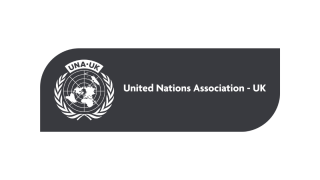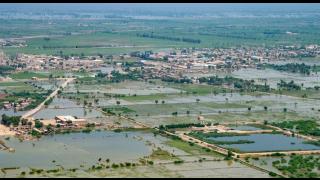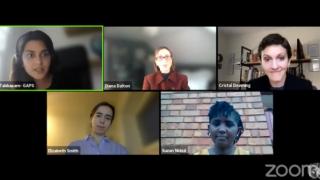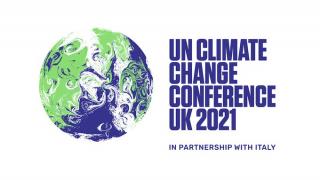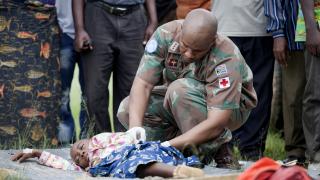
Delivering Aid in Regions of Conflict
By Trevor Evans, Chair, UNA Harpenden
This was the theme of the address given by Chantal Daniels at UNA Harpenden’s annual service to commemorate UN Day which was held this year on One World Sunday, 21 October, in All Saints Church. Chantal is Policy and Advocacy Officer for the African Great Lakes Region at Christian Aid. She has previously worked for the UN in the Democratic Republic of the Congo (DRC) so she was eminently qualified to speak on this subject. The following is a summary of the points she made in her address and in discussion after the service.
The UN has had a mission in the DRC since 1999, which is the largest UN peacekeeping force with over 19,000 uniformed personnel and 4000 civilians. Its main mission is to supervise the ceasefire between opposing forces within the country, and to protect civilians in a country comparable in size to Western Europe. There are also many hundreds of personnel working for non-governmental organisations (aid agencies etc). Clearly the UN has not yet succeeded in its main mission and there are many critics of its performance, including some NGOs.
However it should be recognised that the UN is not in the country to replace the national government but to provide security and assistance to those elements of the population that the government is unable or unwilling to help. The UN has many tasks in its mission and many Congolese civilians rely on the protection from UN forces. Only the UN has the authority to attempt the most difficult task of trying to consolidate the peace agreement. Increasingly the UN is involving NGOs as partners in the tasks of its mission but there is still a long way to go. NGOs, including Christian Aid, are contributing to fostering reconciliation through their support for local faith based organisations who are often the most effective and trusted organisations. For example:
- Eglise du Christ au Congo is working with the UN in promoting reconciliation by getting rebel groups out of the bush, reintegrating them back into society and involving them in high level political meetings.
- Churches, UN and NGOs are working together in combating sexual violence and disseminating local prevention messages, providing assistance and promoting reconciliation.
- Christian Aid is also involved in global advocacy, together with church authorities at Lambeth Palace and UNAIDS, to change policies and to emphasize the role of churches.
Chantal said that when she first joined the UN she had ambitions to change the world. Now she realises that big changes are brought about by an accumulation of small successes by many organisations working together with, and under the umbrella of, the United Nations. In a country ravaged by civil war, church based organisations are often the main hope for the communities. The services provided by these NGOs are often more visible to the local population than the institutional reforms produced by the UN but these two roles should be seen as complementary. The UN cannot save the world on its own; it depends upon the support of member nations and NGOs, but it is the only organisation with the authority to tackle these difficult global problems.
We were delighted to receive the support and hospitality of All Saints Church for the service, refreshments and subsequent discussion. The generous collection will be shared between Christian Aid and UNA.
Photo: A wounded child is prepared for evacuation by members of the UN Organization Stabilization Mission in the Democratic Republic of the Congo (MONUSCO) in Walikale, North Kivu, on 26 July 2012 (c) UN Photo/Sylvain Liechti

